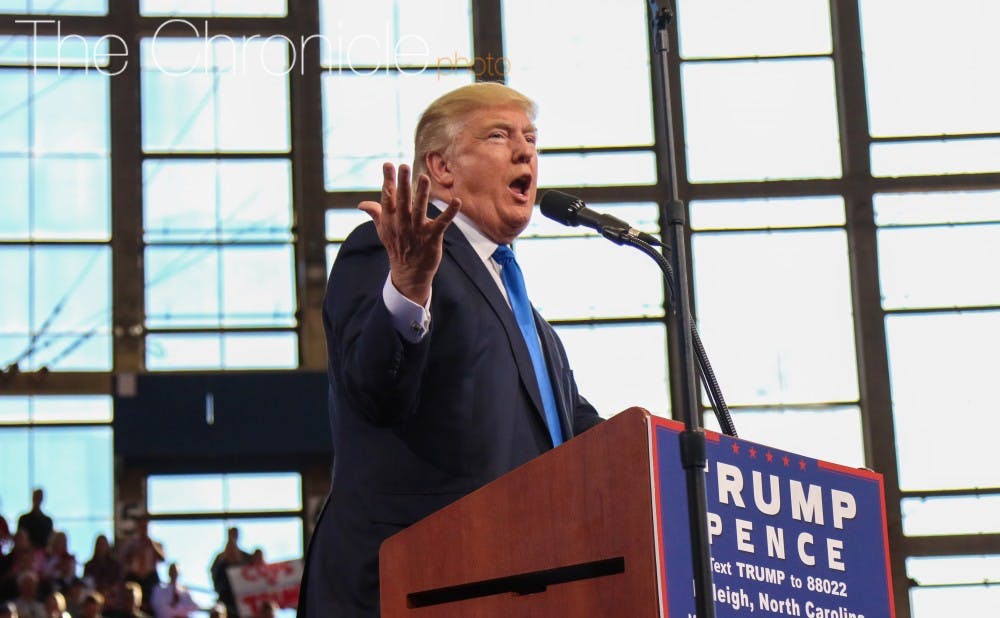President-elect Donald Trump broke a nearly four decades-old precedent last week when he fielded a call from Taiwan's president, sparking considerable diplomatic uncertainty.
Taiwan and the United States broke off formal diplomatic ties in 1979 with the passage of the Taiwan Relations Act, and no American president or president-elect since then has directly spoken with a Taiwanese president. Trump's recent phone call with Taiwan’s president Tsai Ing-wen, therefore, came as an unprecedented move, said Joseph Grieco, a professor of political science.
"I think the U.S. government tries to keep U.S.-Taiwanese relations on an informal low-key basis," he said. "The fact that this was publicized as it was suggests that both the U.S. side and the Taiwanese side wanted to send a signal to the Chinese government that this contact occurred.”
Taiwanese-American junior Alex Tseng agreed that the call was aimed at China, but did not think it foreshadowed any actual changes in Taiwan policy.
“I believe Trump is just using the call to remind China that the U.S. is a powerful country,” Tseng said. “He wants to prove to his supporters that he is against China, but he won’t actually make changes in future U.S. policy toward Taiwan.”
Of concern to many is how China will react, and the leading officials have already taken offense. Chinese Foreign Minister Wang Yi labeled the call a "petty move" in an interview with The Washington Post, adding it would not change China's strategic importance in global politics. Yi also noted that China did not want to disrupt the "One China" principle, which he called "the foundation for healthy development of Sino-U.S. relations."
Ing-wen's election represents the return to power of the pro-Taiwanese independence Democratic Progressive Party, which has led several commentators to speculate about how the call might affect future diplomacy. Although the call by itself might not change too much, Grieco said there is a "quite high probability of some sort of militarized incident" in the future.
Taiwanese-American junior Thomas Lai said the relationship between Beijing and Taipei "hasn’t turned that bad compared to [former Taiwanese President Ma Ying-jeou's] administration." He also argued that Republicans have historically been friendlier to Taiwan than Democrats have been.
But Tseng disagreed with Lai's assessment, suggesting Ing-wen's leadership was worse for the Taiwanese people. By supporting Taiwanese independence, he argued, Taiwan was inviting potential Chinese retaliation.
"Since China can’t do anything over the U.S., China will target Taiwan," Tseng said.
Ing-wen told the New York Times that she does not foresee a major policy shift—"because we all see the value of stability in the region." However, Grieco said that he did not think relationships were not going to improve.
“Things will certainly not get better," he said. "They are going to deteriorate further, not solely because of Taiwan but because of a whole host of issues.”
Get The Chronicle straight to your inbox
Signup for our weekly newsletter. Cancel at any time.

